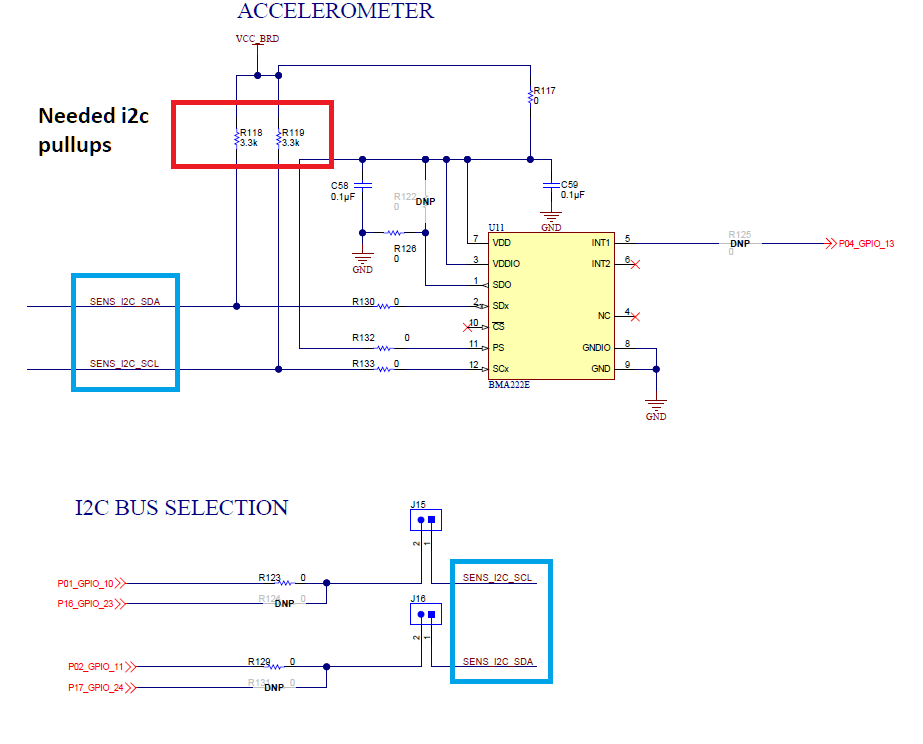Other Parts Discussed in Thread: SYSCONFIG
Hi Team,
One of my customer is having some issues bringing up the CC3220SF per below. Please let me know your thoughts.
I’m using the CC3220SF to interact with a I2C slave device.
To understand how to use the I2C library in TI, I run the sample code: i2ctmp_CC3220SF_LAUNCHXL_tirtos_ccs and it worked fine, I saw the values from the TI sensors.
After it, I connected the CC3220SF to our device that works on 3.3V (In TI, I connected the data to J16 and clock to J15).
Then I wrote my code, based on the sample, to write 11 bytes to our device – I2C slave.
The whole time I got the following error: “I2C bus is already in use!” when run the command I2C_transfer. Although when I debug the I2C device with Aardvark I see that our device works fine and there is no other master taking the bus.
I wanted to recheck the library, so I returned the jumpers to the place and run again the sample code: i2ctmp_CC3220SF_LAUNCHXL_tirtos_ccs. I still got : “I2C bus is already in use!”.
I didn’t success to do it work.
Any ideas on what could be going wrong here?
Regards, Diego


